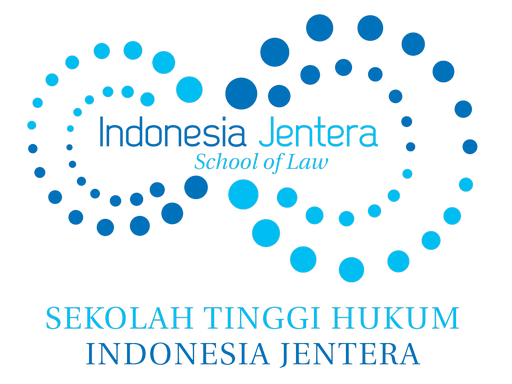There are two recent considerations that can be tied to the establishment of a mechanism for the settlement of small claims (small claims court) in Indonesia.
The first consideration is the constantly low number of civil claims and the second is Indonesia’s status in a recent universal assessment of the condition of civil justice.
Those two considerations have added to a long aspiration to expand access to justice as advocated by various elements of civil society, including the specific aims of a limitation of cassation of small cases to reduce the case backlog that has long been voiced by the judiciary and business climate improvement that has lately become part of the agenda of the government.
The number of civil claims is important to be aware of as it is commonly used to indicate the level of public confidence in the courts.
In civil claims, people voluntarily bring their legal issues to the court for intervention through a competent decision.
This has to be distinguished from civil petition, which does not arise out of a dispute and is merely a form of civic compliance in civil administration. It must also be distinguished from criminal cases, where people are forcibly brought to the court by law enforcers.
In 2015, there were only 28,374 civil claims that went to first instance courts of general jurisdiction (district courts) throughout Indonesia. That figure is often mixed with the number of petitions, which if combined together may appear to make the courts’ civil case roll large, with 59,890 cases.
Moreover, if the figures are complemented by another 4 million incoming criminal cases (though 95 percent of them are summary traffic violations), they may amount to 4.55 million cases.
The number of the civil claims is however very low in comparison to almost 60 million micro, small and medium enterprises (SMEs), which is the group with the most potential to bring them to court.
It becomes even smaller, if compared with the total population of Indonesia, which now exceeds 255 million. This small number of civil claims was handled by 14,847 court personnel in 353 district courts in 2015, including 3,311 judges.
One may notice that the 28,374 civil claims were an increase of 7.35 percent from the figure in 2014, and an increase of 60.8 percent compared with 2013.
The larger number may be welcomed as a mark of rising confidence in Indonesian civil courts. However, given its ratio to SMEs and compared to the size of Indonesia’s population it is still not commendable.
The question is why the number of civil claims in Indonesia is so small. It could be caused by shared public perceptions that civil justice in Indonesia is expensive, long and convoluted.
Not to mention the doubts about the integrity of the process. Due to the reluctance to go to court, people will let their disputes fade away without proper settlement.
Some simply consider the problems as a business risk, bad luck, or an ordeal from God.
Many also choose to criminalize a civil dispute by categorizing it as fraud, embezzlement or defamation. Not a few find their own way out by means outside the law.
In turn, such perceptions and attitudes can discourage people from starting, maintaining, let alone expanding their business. In the end, the reluctance to go to court contributes to the wheels of the economy becoming slowed.
Some of the above perceptions of civil justice in Indonesia are confirmed by a recent survey on the ease of doing business (EoDB) by the World Bank.
The annual survey by the World Bank was last carried out in 2015 in 189 countries, of which Indonesia was ranked 109th.
The EoDB survey used multiple assessments, among other factors, ease of starting a business, obtaining credit, getting electricity, paying tax and enforcing contracts, which is more accurately read as the settlement of civil disputes.
Let us focus on the assessment of enforcing contracts where its components fall under the scope of
court authority. Whereas Indonesia’s ranking in the overall EoDB survey was 109th, its ranking in the enforcement of contracts was much lower, at 170 of 189 countries.
According to the World Bank, settlement of civil disputes took 460 days in Jakarta and 510 days in Surabaya from the filing of a claim to the enforcement of judgment.
The cost ratio was 118 percent in Jakarta and 107.3 percent in Surabaya, with the largest component of the cost being a lawyer. This means that, in these two cities, the cost of processing a civil claim is actually higher than its value, where most of the costs goes to lawyers.
The quality index of judicial processes in Jakarta was said to be 6.5 out of 18, while Surabaya was 5.5. The lowest score in the index could be found in the court automation element, since only online publication of decisions has been established in Indonesia, not electronic registration or electronic payment of court fees.
On Aug. 7, 2015 the Supreme Court issued Regulation (Perma) No. 2/2015 on a mechanism of settlement of small claims, which tries to solve some of the basic problems of civil justice.
A small claim is defined as a case of breach of contract or a tort outside land disputes, with a claim under the value of Rp 200 million (US$14,500), where standard of proof is simple, and according to the laws should not be resolved through special courts.
Small claims are examined and decided by a single judge, and only at the level of objection the claim will be heard by a panel of judges in the same district court, where the decision is final and cannot be brought to appeal or cassation.
The case settlement period is made short, which requires only 58-60 days from the initial filing of the claim to the stage where final decision can be secured.
This shortened period is facilitated by the provision where parties must be domiciled in the jurisdiction of the same district court so that summonsing can be made simpler, but also by a summarized hearing process, accommodating informal verbal questions and answers.
Judges play an active role in a trial that must be attended directly by the parties, so that the need for legal counsel can be reduced. Not only is it speedier, but those innovations are also expected to provide more affordable civil proceedings.
This mechanism is still new. Several district courts are only making preparations to implement it. The community does not widely know about its existence yet.
Of the few cases that have come in (21 in 2015), some were resolved with only four court sessions, less than 25 days and ending in mediation. In other cases, the plaintiff won the claim that was decided in less than 25 days by a single judge.
Dissemination to the public needs to be carried out so that this new mechanism can become widely known and utilized as one of the protectors of economic activities.
Hopefully, the number of claims to district courts will continue to rise, which can signal improved convenience for Indonesians in starting up their businesses including resolving any disputes that may arise from their business activities. – See more at: http://www.thejakartapost.com/news/2016/03/29/revitalizing-indonesian-civil-justice.html#sthash.Fybk8zdd.dpuf
============================================================================
Sumber : www.thejakartapost.com/
Terbit pada : Selasa, 29 Maret 2016
Tautan online: http://www.thejakartapost.com/news/2016/03/29/revitalizing

